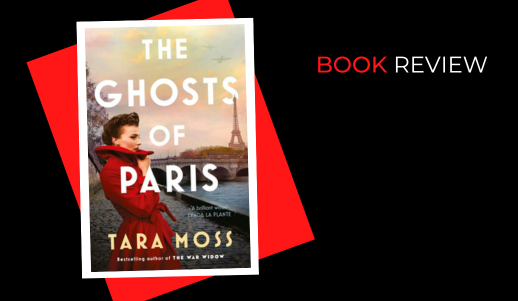By Tara Moss
Publisher: Harper Collins: 2022
Publisher’s blurb
The search for a missing husband forces investigator and former war reporter Billie Walker to face the ghosts of her own painful past, and sets her on a collision course with an underground network of Nazis …
It’s 1947. The world continues to grapple with the fallout of the Second World War, and former war reporter Billie Walker is finding her feet as an investigator. When a wealthy client hires Billie and her assistant Sam to track down her missing husband, the trail leads Billie back to London and Paris, where Billie’s own painful memories also lurk. Jack Rake, Billie’s wartime lover and briefly, husband, is just one of the millions people who went missing in Europe during the war. What was his fate after they left Paris together?
As Billie’s search for her client’s husband takes her to both the swanky bars at Paris’s famous Ritz hotel and to the dank basements of the infamous Paris morgue, she’ll need to keep her gun at the ready, because something even more terrible than a few painful memories might be following her around the city of lights …
Review
by Ola Kwintowski
The Ghosts of Paris by Tara Moss is an engaging mystery novel and the second book in the series following Billie Walker, a private investigator. Moss takes readers on a thrilling journey through Australia, England and France. She sets the mood for each unique location and highlights issues of racism, sexism, and the complexities of freedom. The mystery involves looking for a client’s lost husband but is tainted by Billie’s personal struggle to find her own husband who has been missing for two years. Moss challenges the social expectations of the time with a strong female protagonist and her male assistant, Sam. The chemistry between Billie and Sam is palpable, and the tension builds as the mystery of the missing persons unravels. Moss’ writing style is engaging and captures the World War II era through language, social environment, and fashion. An example of the juxtaposition of life’s complexities is demonstrated in the opening paragraph, where death and beauty are at a vis-à-vis:
‘The square was shrouded in white dust and ash, a sight both curiously beautiful and chilling, as tiny fragments of the town and the people in it spread like unearthly snow all round’.
Moss uses the separate locations to unravel specific themes. The novel highlights racism in Australia by positioning Shyla, an indigenous woman and a friend to Billie, as she struggles with judgement from privileged Australians and fights within herself to resist a job offer from Billie. Shyla’s struggle is relatable: choosing a career that excites her against cultural pride and trying not to be locked into a daily grind. Moss explores the friendship of both women and highlights the complexities within both sides. In London, Billie faces sexism – she is often told referred to as ‘dear girl’, told that her job is ‘terribly unladylike’, and queried whether it is ‘appropriate for a woman?’ The sexism is not only relegated to females – themes of homosexuality and toxic masculinity are also explored. Moss highlights the roles both women and men are required to play and how they elicit negative reactions when they deviate from social expectations. In Paris, there is more sexual freedom and freedom of speech, yet women must still adhere to certain expectations. Moss skilfully shows how these themes were relevant in the 1940s and how they are still relevant today.
The characters are well-developed and interesting. Billie, is portrayed as both strong and vulnerable; she is unafraid to get her hands dirty with her colt revolver strapped to her thigh but can also slip into a stylish dress with her Fighting Red lipstick and dazzle the room with her feminine charms.
Readers who enjoy historical mysteries with a modern twist will find this novel a delightful read. Moss has done an excellent job of creating a strong female protagonist, challenging social expectations of the time, and weaving a compelling mystery that keeps the reader engaged until the end.
